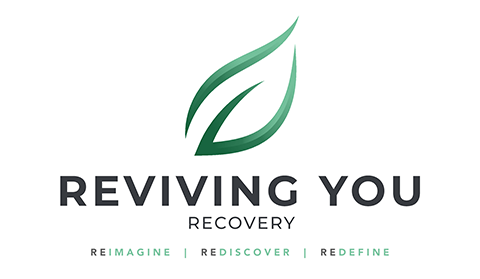Can Mindfulness Help Me with My Alcoholism?

Alcoholism, also known as alcohol use disorder (AUD), is a complex and deeply personal struggle that affects millions of individuals and their families every year. At Reviving You Recovery, a leading drug and alcohol detox and treatment center, we understand that overcoming alcoholism requires more than just abstinence—it involves a holistic, compassionate approach to healing the mind, body, and spirit. One powerful and increasingly recognized tool in this process is mindfulness. But what exactly is mindfulness, and how can it help individuals with alcoholism find lasting recovery?
In this article, we will explore the connection between mindfulness and alcoholism, the science behind its effectiveness, and how incorporating mindfulness practices into a treatment plan can offer hope and healing.
What Is Mindfulness?
Mindfulness is the practice of paying deliberate attention to the present moment without judgment. Rooted in ancient meditation traditions, particularly from Buddhism, mindfulness has gained significant traction in modern psychology and addiction treatment. It involves observing thoughts, feelings, and bodily sensations with a sense of curiosity and acceptance.
Mindfulness is not about emptying the mind or achieving a state of bliss. Rather, it is about becoming aware of one’s inner experiences and learning to respond rather than react to them. This awareness creates space for healthier decisions, especially in the face of cravings, triggers, and emotional distress.
Understanding the Nature of Alcoholism
Alcoholism often involves a cycle of emotional pain, avoidance, and temporary relief through alcohol. Many people drink to escape stress, anxiety, trauma, or depression. Unfortunately, the temporary relief offered by alcohol often leads to dependence, physical health issues, strained relationships, and a loss of control.
Breaking this cycle requires addressing the underlying issues that drive substance use. This is where mindfulness can play a pivotal role. Rather than suppressing or avoiding discomfort, mindfulness encourages individuals to sit with their emotions and experiences, ultimately reducing the need to self-medicate with alcohol.
The Science Behind Mindfulness and Addiction Recovery
Research has shown that mindfulness can significantly impact addiction recovery, including for those struggling with alcoholism. Studies indicate that mindfulness-based interventions (MBIs) can:
1. Reduce Cravings: Mindfulness helps individuals notice cravings as transient mental events, rather than urgent needs that must be acted upon. By acknowledging cravings without judgment, individuals can ride out the urge without giving in.
2. Improve Emotional Regulation: Mindfulness fosters emotional intelligence and regulation. By being more aware of emotional triggers, individuals can learn to manage their feelings in healthy ways, reducing the likelihood of relapse.
3. Decrease Stress and Anxiety: Chronic stress and anxiety are common relapse triggers. Mindfulness practices like meditation and deep breathing activate the parasympathetic nervous system, promoting relaxation and reducing stress.
4. Enhance Self-Awareness: With consistent practice, mindfulness allows individuals to become more aware of patterns of thought and behavior, empowering them to make conscious, healthier choices.

5. Support Brain Health: Studies using brain imaging techniques have shown that mindfulness can increase gray matter density in regions associated with self-awareness, learning, and emotional regulation, all critical for long-term sobriety.
How Mindfulness Fits into Alcoholism Treatment
At Reviving You Recovery, we believe in treating the whole person, not just the symptoms of addiction. Our programs incorporate evidence-based therapies and holistic modalities, and mindfulness fits seamlessly into this integrative model.
Mindfulness can be introduced at every stage of treatment:
1. Detox Phase: The early days of detox can be physically and emotionally overwhelming. Mindfulness techniques like breath awareness and body scans can help individuals stay grounded during moments of discomfort or anxiety.
2. Residential Treatment: During inpatient treatment, clients can engage in daily mindfulness practices such as guided meditation, yoga, mindful walking, and group discussions focused on present-moment awareness.
3. Outpatient and Aftercare: As individuals transition back into daily life, mindfulness becomes an essential coping skill. Regular meditation practice, mindful check-ins, and journaling help clients maintain emotional balance and sobriety.
Get Your Questions Answered Now

Types of Mindfulness Practices for Alcoholism Recovery
There are many ways to cultivate mindfulness. Some commonly used practices in addiction recovery include:
- Mindful Breathing: Focusing on the natural rhythm of the breath helps anchor individuals in the present moment and calm the nervous system.
- Body Scan Meditation: This involves systematically bringing attention to different parts of the body, promoting relaxation and awareness of physical sensations.
- Mindful Walking: Walking slowly and attentively helps ground individuals in their surroundings and bodies, reducing anxious thoughts.
- Loving-Kindness Meditation: Also known as Metta, this practice involves sending positive wishes to oneself and others, fostering compassion and reducing self-criticism.
- Mindful Journaling: Writing down thoughts, feelings, and observations can help individuals process emotions and gain clarity.
Mindfulness-Based Relapse Prevention (MBRP)
Mindfulness-Based Relapse Prevention (MBRP) is a structured therapeutic approach that combines traditional relapse prevention strategies with mindfulness practices. It was developed specifically for individuals recovering from substance use disorders, including alcoholism.
Key elements of MBRP include:
- Identifying high-risk situations
- Developing awareness of triggers and automatic reactions
- Creating space between impulse and action
- Practicing acceptance and self-compassion
Research shows that individuals who participate in MBRP experience lower rates of relapse, reduced cravings, and improved psychological well-being compared to traditional treatment alone.
The Role of Mindfulness in Building a Sober Lifestyle
Recovery is about more than abstaining from alcohol; it’s about building a meaningful, balanced life. Mindfulness supports this goal by:
- Improving Relationships: Being present with others fosters better communication, empathy, and connection—all vital for healthy relationships in recovery.
- Enhancing Purpose: Mindfulness helps individuals reflect on their values and goals, guiding them toward a purposeful life beyond addiction.
- Increasing Gratitude: Regular mindfulness practice encourages individuals to notice and appreciate the small joys in everyday life.
Overcoming Common Challenges with Mindfulness
While mindfulness offers many benefits, it can be challenging, especially in early recovery. Common obstacles include:
- Restlessness: It’s normal to feel fidgety or distracted when starting a meditation practice. The key is consistency and patience.
- Emotional Intensity: Becoming aware of difficult emotions can be uncomfortable. Support from trained therapists and group facilitators is essential during this process.
- Skepticism: Some may feel unsure about mindfulness. Trying it with an open mind and guided support can help break through resistance.
At Reviving You Recovery, our team of compassionate professionals guides clients through these challenges with encouragement, structure, and understanding.
Client Success Stories: The Power of Presence
Many of our clients at Reviving You Recovery have experienced profound transformations through mindfulness. One former client shared:
“When I first arrived at Reviving You, I was constantly running from my thoughts. The mindfulness classes helped me slow down, breathe, and actually feel what was going on inside. It wasn’t easy, but over time I found that I didn’t need to reach for a drink every time I felt uncomfortable. I learned to sit with my emotions and let them pass. That changed everything for me.”
Stories like this are a testament to the power of being present. With mindfulness as a cornerstone of treatment, recovery becomes more than just staying sober—it becomes a journey of self-discovery and inner peace.
Getting Started with Mindfulness at Reviving You Recovery
If you or a loved one is struggling with alcoholism, know that you are not alone. At Reviving You Recovery, we offer compassionate, comprehensive care in a serene and supportive environment. Our programs integrate evidence-based therapies with holistic approaches like mindfulness to help individuals heal from the inside out.
You don’t need to be an expert in meditation to benefit from mindfulness. All it takes is a willingness to try and the support of a treatment team that believes in your potential to recover.

Conclusion: A Path to Awareness and Freedom
Mindfulness is more than a buzzword—it’s a life-changing practice that empowers individuals to face addiction with courage, clarity, and compassion. For those struggling with alcoholism, mindfulness offers a path to healing that goes beyond symptom management. It invites individuals to become more present, more self-aware, and ultimately, more free.
At Reviving You Recovery, we believe that mindfulness is not just a tool for recovery—it’s a way of life. By incorporating mindfulness into your journey, you open the door to lasting transformation and inner peace.
If you’re ready to take the first step toward recovery, reach out to Reviving You Recovery today. A mindful, sober life is within reach.
We Accept Most Insurances
We are in network with:









We know insurance coverage can be a source of uncertainty for people. We make sure you have all the information necessary. The great news is health insurance can potentially cover the total treatment costs. If you don't have insurance, we offer cash payment options for our treatment programs and are committed to working with clients regardless of financial situations.
